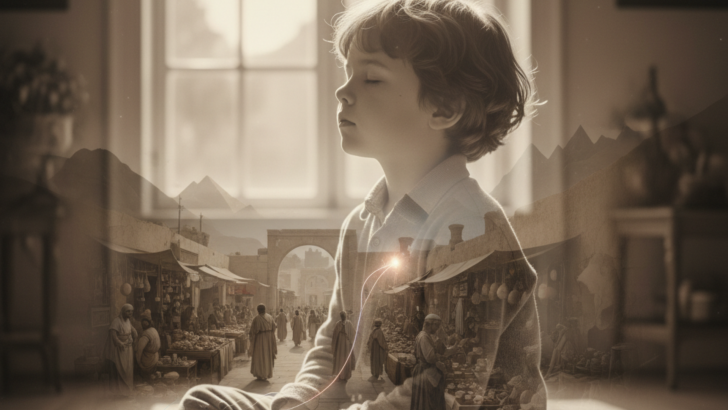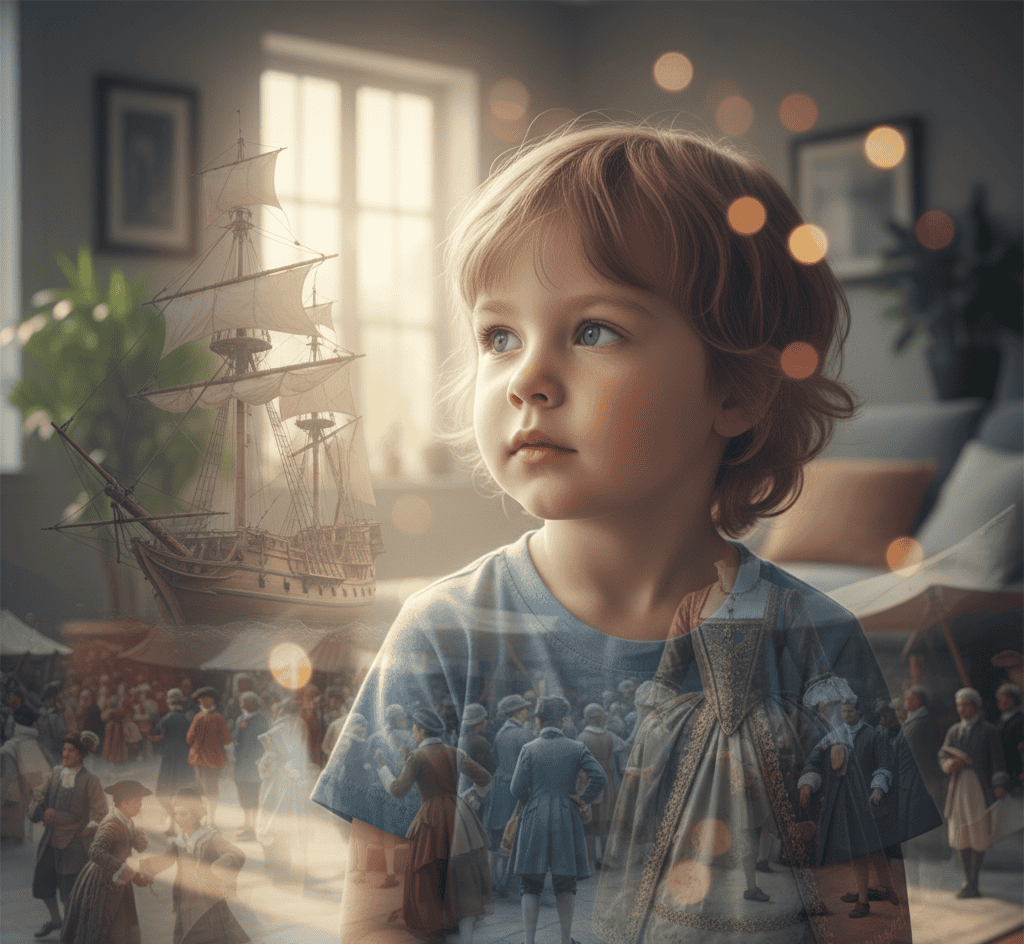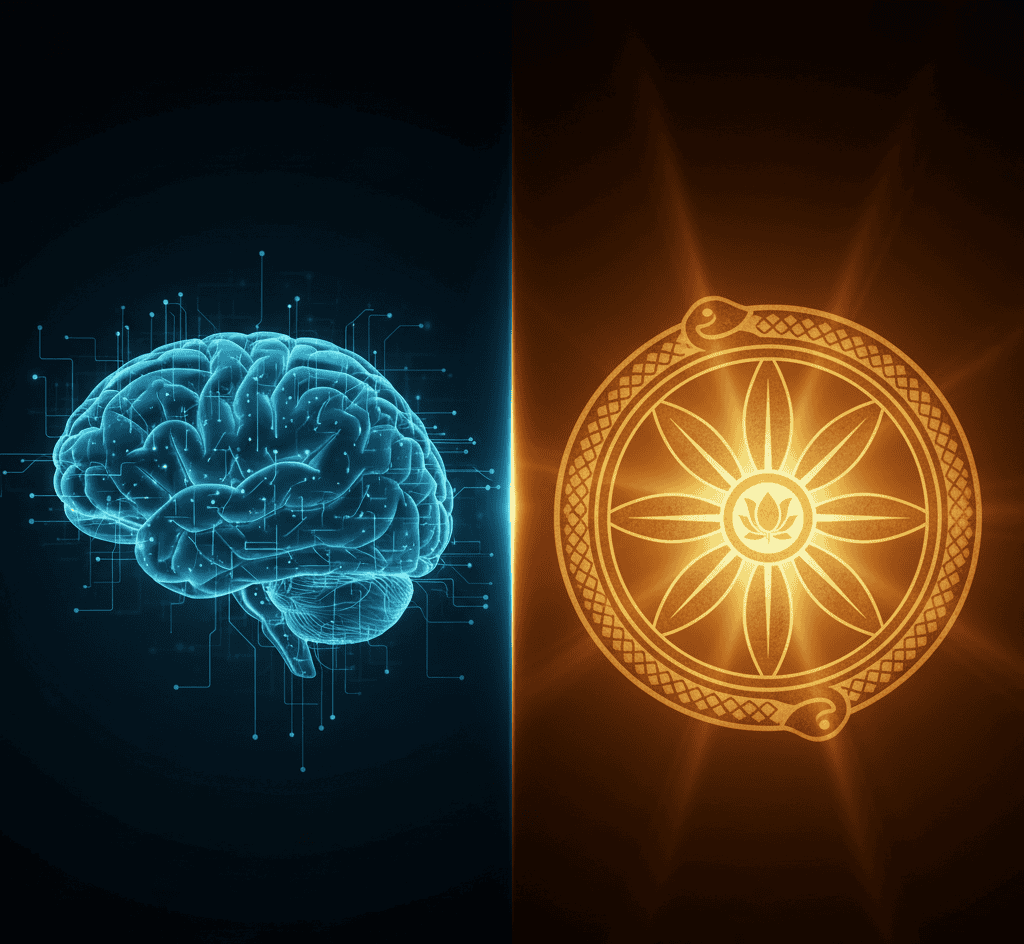Some stories are too strange to ignore. Across cultures and continents, children have said things that make adults freeze in place.
These moments are tiny cracks in the wall of what we call “normal,” letting in a chill of something deeper, older, and impossible to explain.
Below, we explore the phenomenon through four angles: the stories that started worldwide interest, why children might be the ones who speak up, what science says about it all, and how these memories fade.
The Stories That Spark the Most Questions
Every mystery begins with a story, and the most famous ones often come from children between the ages of two and seven.
At that age, they’re still honest in a way adults have forgotten. No hidden motives. No desire to impress. Just pure, unfiltered experience.
Many stories follow a similar pattern: a child begins talking about things their parents know they couldn’t possibly have learned.
Maybe a five-year-old describes a village across the world, knows a stranger’s nickname, or recognizes objects they’ve never seen in this lifetime.
Some children even describe the moment they “died,” speaking with a simplicity that is scarier than any ghost story.
One well-known case involves a little boy who kept insisting he was from a distant city he had never visited.
He described the layout of the streets, the color of a house, and even the name of the man he claimed was his “old friend.”
When researchers took him to that same city, the boy walked through the streets as if he were coming home after a long trip.
He pointed at landmarks correctly. He recognized a building where he said he once worked. People who lived there confirmed the details.
Another child, a girl from India, remembered the life of a woman who died before the child was born.
She recalled the woman’s children by name, her jewelry, her home, and even a private argument the woman once had with her sister.
When the girl was taken to the village, she ran up to the woman’s real family and greeted them with the exact warmth of someone returning after years away.
Of course, not every story is famous. Some happen quietly in everyday homes — kids talking about being soldiers, farmers, or mothers in some place that existed long before they were born.
Parents often brush it off at first, but the details can become so specific that even skeptics feel a shiver.
Why Children Speak of “Other Lives”
It’s interesting that children, not adults, are the ones who report past-life memories most often. There are a few theories about this, ranging from spiritual to psychological.
One idea is that children are still very connected to imagination, intuition, and the inner world.
Adults learn to filter, to doubt, and to stay quiet about anything “strange.” Kids haven’t yet been trained to feel embarrassed about what they say.
They speak freely, and sometimes what comes out seems to come from somewhere far older than their few years on Earth.
Another theory says that if souls truly do return in new bodies, children are fresh enough that the memories haven’t faded.
As they grow, new experiences bury the old ones, and the memories drift away like fog clearing on a warm morning.
This would explain why so many of these stories fade by age seven, almost like someone slowly turning down the volume.
Psychologists offer another perspective: children absorb more information than we realize.
Maybe they overhear adults talking, or pick up on details from stories, images, or even dreams. Their minds might unconsciously rearrange this information into something that feels like a past life.
The only problem? Some cases involve details the child could not have overheard or seen. That’s where the mystery lingers.
Either way, the phenomenon seems to point to something fascinating about childhood, a time when imagination, memory, and emotion blend in ways adults can barely understand.
What Science and Belief Systems Say About It
The scientific world doesn’t ignore these stories, even if many researchers stay cautious.
Some believe the memories can be explained through cryptomnesia, when the brain stores information without the person realizing it.
Others think the child’s brain might be filling gaps with imaginative details, especially if the child is very creative or sensitive.
But then some researchers take the phenomenon seriously. Dr. Ian Stevenson, for example, spent decades collecting over 2,500 cases of children remembering past lives.
Many of these children described scars, birthmarks, or fears that matched the supposed previous life’s cause of death.
While his research doesn’t “prove” reincarnation, it shows patterns that are difficult to explain away completely.
Different belief systems add their own layers to the mystery. Many cultures — from India to ancient Greece to Indigenous tribes — already accept the idea of rebirth.
To them, these stories simply confirm what their ancestors believed: that life continues in different forms, and memories sometimes slip through the cracks.
Western cultures, which tend to lean on scientific explanations, struggle more with the idea. But even here, the mystery hasn’t faded. Too many cases remain unexplained to dismiss them all.
Instead, they sit on the shelf of unanswered questions, right between “What happens after death?” and “Why do we dream the way we do?”
How These Memories Fade — and What They Leave Behind
Perhaps the strangest part of all this is that these memories often disappear on their own.
A child who once spoke confidently about a past life might suddenly lose interest, forget the details, or act confused when reminded. It’s as if the curtain closes, and the show is over.
Parents often describe this change as gentle. The child stops mentioning the old life.
Their new experiences take over — school, friends, toys, hobbies. Life in the present becomes louder than any echo from the past.
But the impact remains. Families who lived through the experience often say it changed them.
Whether the memories come from imagination, another life, or something in between, they remind us of a bigger truth: the world is still full of things we can’t explain.
And sometimes the smallest voices — the ones still learning to speak — ask the biggest questions.
In the end, children who remember lives they never lived invite us to look beyond the everyday and consider the possibility that our stories don’t simply start at birth and end at death.
Maybe, just maybe, we’ve all lived more lives than we can remember.

Ho sempre sentito una forte connessione con il Divino fin dalla mia nascita. Come autrice e mentore, la mia missione è aiutare gli altri a trovare l'amore, la felicità e la forza interiore nei momenti più bui.





